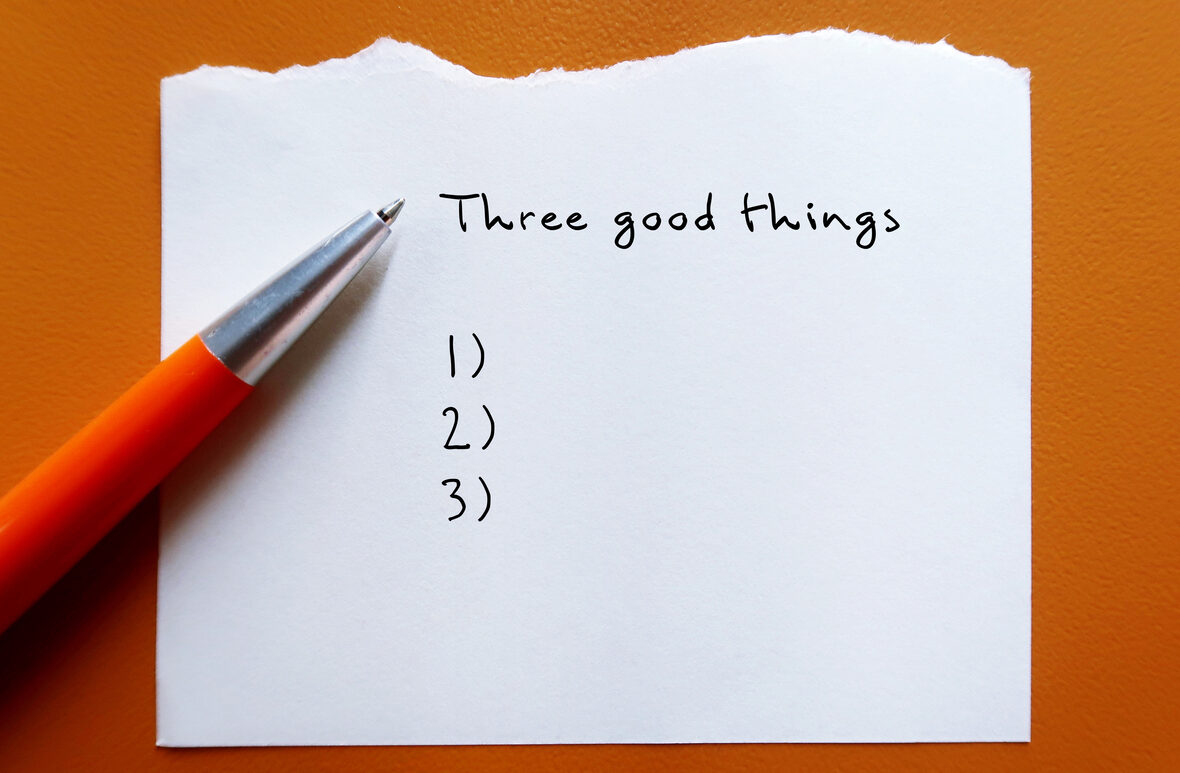Some post-Thanksgiving reflections on how to cultivate gratitude
As Thanksgiving fades in the rearview mirror, some of us return to our regular lives feeling grateful for family and friends, delicious food, and opportunities to gather together. But what happens when that feeling of gratitude dims? Or maybe we struggled to find any feelings of gratitude—when work is overwhelming, relationships are frayed, or our life circumstances leave little to feel grateful for?
This is when gratitude matters most and can be of most benefit to our wellbeing. And it’s also when gratitude feels hardest to find.
What is Gratitude?
I think most of us understand that gratitude is the appreciation of what is valuable and meaningful in our lives; it can also be a general state of thankfulness and appreciation. But here’s what makes gratitude particularly powerful: being grateful is a choice, an ongoing attitude that is relatively immune to the ups and downs in life.
This distinction between feeling grateful and being grateful changes everything. We don’t have to wait to feel positive. We can choose a grateful perspective even when or especially when, circumstances are difficult.
Why Bother with Gratitude?
The research on gratitude’s benefits is compelling. Developing feelings and practices of gratitude are related to a greater sense of satisfaction with life, better mental health, and fewer symptoms of anxiety and depression.
How does this work?
Consistent gratitude practice triggers changes in our brains (yay, neuroplasticity!) that over time alter our perceptions by modifying what we focus on. By shifting our focus from life’s negatives and deficits, we learn to focus on what we do have.
In other words, gratitude practices actually rewire your brain to experience more gratitude over time. The more you practice, the easier it becomes.
Three Simple Practices for Cultivating Gratitude
-
The Gratitude Prompt
Each morning as soon as you wake up, repeat the phrase, “Today is going to be a great day.” This phrase directs your brain to watch for and find evidence that the day is a great day. Slowly, your brain chooses to focus on positive experiences and dwells less on negative occurrences.
-
Gratitude Across Time
Each morning, bring to mind one thing from your past you’re grateful for, one thing in the present, and one thing you’re hopeful about in your future.
-
The Gratitude List or Journal
Before bed, write down three to five things you’re grateful for each day or week. Keep it simple and consistent. Consistency is key since that’s what stimulates your brain to rewire for gratitude.
When Gratitude Feels Impossible
If you’re struggling to feel grateful right now, you’re not selfish or needy. Finding gratitude when life feels hard is not about denying the challenges we face (or faced). Your inner saboteurs may be telling you that should be grateful. When we deny our reality and disregard our feelings it can lead to ‘toxic positivity’ where we are told (or tell ourselves) that we should feel grateful when we actually don’t.
Instead, gratitude is about finding the perspective needed to navigate those challenges with grace and resilience.
I use the framework of “accept or convert” to point out that even in truly terrible situations, we have choice in how we respond. When facing a difficulty, we might choose to experience the situation as one we will accept. It could be minor or major circumstance (a traffic jam or a significant illness, for example) and we can choose to accept the situation rather than let ourselves feel outraged or helpless. By choosing to accept, we are better equipped to tap into our inner resources; to explore the facts and solutions available to us.
Alternatively, we can convert the situation by actively looking for the gift or opportunity that is hidden inside. We can all think of times when what appeared to be a negative experience, being fired for example, ends up being an opportunity for growth or change. It might take days, months, or even years, to feel grateful for what occurred. For really big setbacks or losses, you may need more time, professional support, and repeated practice, before the gift or opportunity emerges. We may never feel completely grateful for these experiences, but we can feel grateful for some aspects.
Your Gratitude Challenge
This week, I invite you to choose one of the three practices above and commit to it daily. Notice when your Judge or other saboteur shows up to criticize your gratitude practice or tell you that you’re not doing it “right.” Simply acknowledge that voice and return to the practice.
Gratitude, like any skill worth developing, requires practice. The good news is that each time you practice, you’re literally rewiring your brain to experience more ease, more appreciation, and more resilience.
Do you have a gratitude practice? Take a moment and reflect on any changes have you noticed in your outlook since starting. If you haven’t practiced gratitude yet, is negative thinking getting in your way? How might you flip your negative thinking to positive? (Hint: be literal! If you catch yourself thinking, “this will never work” try “this will work.”
